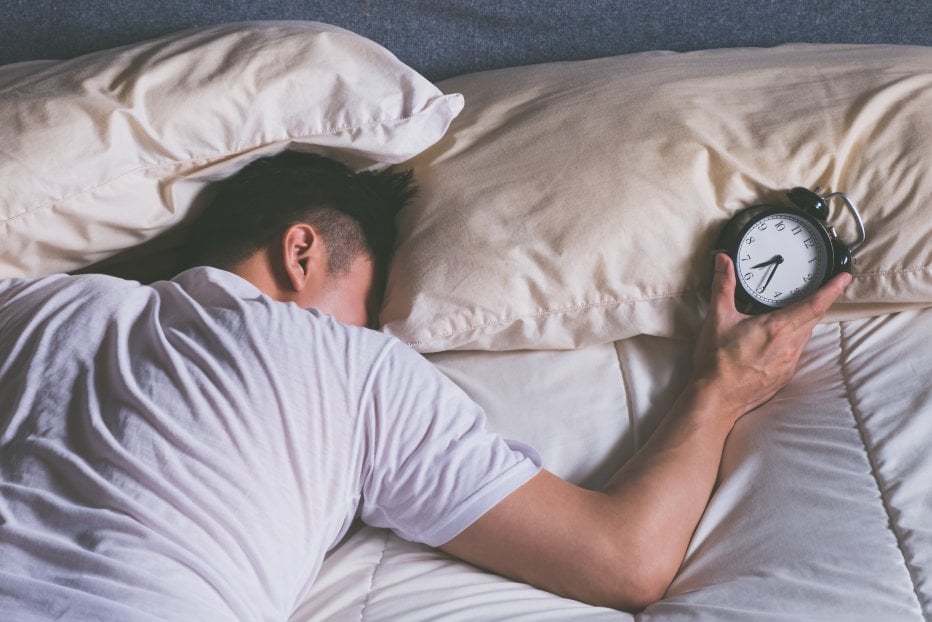How Poor Sleep Negatively Affects Your Job

By: Dr. Brenda Rempel MD
Sleep deprivation increases the stress hormone cortisol in firefighters. Researchers Rucas and Miller found that sleep-deprived firefighters became more impulsive with their decision-making.
A restful night’s sleep is something we often take for granted. We spend nearly one-third of our lives or about eight hours per night sleeping. Researchers are still puzzled about the exact role that sleep plays in our lives but what is known is that a sufficient amount of sleep is essential for optimal physical health, immune function, mental health and cognition – especially when it comes to being a firefighter.
How much do we need?
Sleep requirements vary from person to person. Most adults require seven to nine hours of sleep each night in order to feel awake enough during the day. Acute health impairments from sleep deprivation include short-term memory loss, slower reaction time, reduced vigilance and mood changes. Falling asleep at inappropriate times, such as when you’re at work or while driving, can also occur. Chronic effects include accidental injury/death and workplace injuries. Inadequate sleep has led to human error that contributed to devastating occupational hazards such as the Three Mile Island and Chernobyl. Health problems attributed to chronic sleep deprivation include cardiovascular disease, altered immune response, obstructive sleep apnea and digestive disorders. Obesity and diabetes can also be a consequence of sleep insufficiency.
Firefighters are fighting an uphill battle
The fact that sleep is so important for our health is not necessarily good news for firefighters. By profession, firefighters and paramedics experience sleep disruptions chronically. The job demands prolonged hours of readiness and response capability, often at the expense of a full night’s sleep. This frequent interruption prevents first responders from cycling properly through sleep stages of a sufficient duration. If normal cycles of wakefulness and sleep each day (circadian rhythm) are frequently interrupted, restoration requires at least two and as many as four days depending on the shift schedule used by fire departments.
Sleeping disorders and the role of a firefighter
Many firefighters experience sleep disruptions or disorders that are directly linked to their work. A descriptive study in the Journal of Occupational Environmental Medicine in 2011 showed that many firefighters report sleep deprivation (59 per cent), binge drinking behaviour (58 per cent), and depression (11 per cent). A 2014 study published in the Journal of Clinical Sleep Medicine found that 37 per cent of more than 7,000 studied screened positive for at least one significant sleep disorder. Sleep disturbance was prevalent beyond working time, exceeding 50 hours per week and occupational accidents were four-fold more prevalent by working a 70 hour per week, according to a 2002 study found in the professional journal Work and Stress.
The role and importance of getting a good night’s rest
We need to understand how important sleep is to overall health and what firefighters and their organizations can do to reduce the negative effects of sleep disruptions. A shift in organizational attitudes and resources to support healthy sleep become as important as fulfilling the mission of constant readiness.
Here are some practical ideas about sleeping quarter set up and sleep hygiene practices that are conducive to real rest:
- Comfortable and supportive mattresses
- Well-ventilated spaces
- Light-blocking shades, cool ambient temperatures and minimization of environmental noise
- No turnout gear allowed in sleep spaces due to off-gassing of toxins
- Caffeine use (coffee, tea, sports drinks, soda and some medications) limited to the first half of the night shift (improves alertness) and stopped within eight hours of bedtime (to avoid disrupted daytime sleep)
- Avoid blue light from phones, computers or e-readers before bed as they stimulate parts of the brain that support wakefulness
- Short acting sedative-hypnotic medications and melatonin can be useful for daytime sleep
- Wake-promoting agents are an option for those with persistent sleepiness
- Circadian realignment strategies such as light exposure and light-blocking glasses
When sleep is lost, the debt must be repaid.
Get those naps in
Short naps of 20 minutes can be restorative. For those firefighters who have worked a 24-hour shift with no sleep, they will need to compensate the following day in order to avoid the detrimental effects of sleep deprivation. The need to replenish the well of sleep becomes more important as we age.
As a dedicated endocrinologist, Dr. Brenda Rempel focuses on diagnosing and treating disorders related to the endocrine. This includes conditions including osteoporosis and diabetes. She also specializes in the research of disorders which affect the body’s endocrine system. The task of an endocrinologist also involves assessing different symptoms while running tests, eventually developing long-term plans for treatment.
Podcast
Contests & Promotions
















